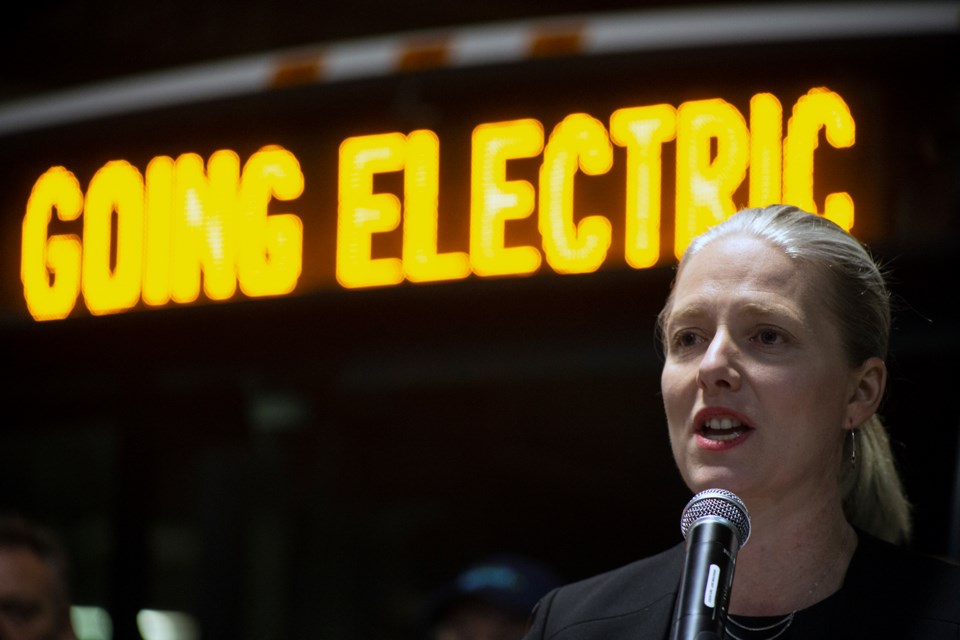A major step in transforming the city’s transit fleet from diesel to electric could happen Sept. 8.
At a meeting of the city council’s Committee of the Whole, city staff is recommending the installation of four electric bus chargers at a cost of $1.5 million at the Watson Road transit headquarters.
Those chargers would allow the city to purchase some electric buses to replace diesel buses as their lifecycle ends and allow those buses to be used as a test pilot for plans that include the complete electrification of Guelph Transit’s bus fleet.
The Watson Road bus garage can only handle four of the new electric chargers due to current infrastructure limitations. Upgrading that would not be cost effective, says the report, given that a new facility could be in the works.
The four chargers chargers would each take four hours to charge an electric bus, giving that bus a range of 300 km.
A new transit facility that would be designed to service a complete fleet of electric buses is part of a proposed City Operations Camps that has yet to be approved by council.
That proposed campus would be on city-owned property located at the northwest corner of Watson Parkway South and Stone Road East. It would include new facilities for transit, operations, fleet maintenance and corporate building maintenance departments.
It comes back to council with a design and business plan for further discussion in the new year.
“Further review has determined that moderate modifications can be made to the existing Transit Facility to accommodate up to four – 150kW electric bus chargers. The initial electric bus chargers will enable Guelph Transit to procure electric buses for the next lifecycle replacement allotment,” says the staff report heading to council Sept. 8.
“The initial electric bus allotment can be used as a pilot study to further inform how the City scales up the Guelph Transit Electric Bus Fleet Transition program. The modifications will not be a sunk cost as future building use will benefit from the modifications and the electric bus chargers can be moved to the new electric Transit Facility.”
The report notes that electricity is more expensive than diesel, but much cleaner.
Energy efficiency of an electric bus is up to five times greater than diesel, but electricity is more costly than diesel.
“This may result in overall fuel costs remaining the same, or even increasing,” the report says.
The report notes that the city’s transit fleet accounts for 6,725 tonnes of CO2e per year, or 35 per cent of the city’s annual corporate greenhouse gas emissions.
To date, $74.7 million has been approved for the upgrade and expansion of the bus fleet from diesel to electric and the design and construction of a new transit storage facility to enable this new technology and expanded fleet.
Current work on the operations campus project includes a detailed route analysis and transit fleet electrification review to determine bus fleet battery sizing and charging requirements.
